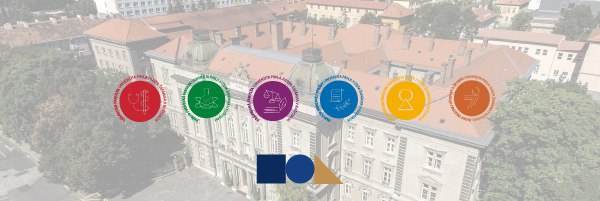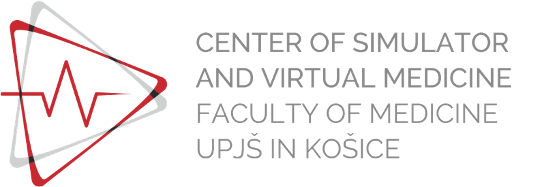History and perspectives – considerations on health psychology
a/ How the field of Health Psychology originated in the world, in Slovakia and how it developed in Košice
Psychosocial factors of health were initially investigated in psycho-somatic medicine and later behavioural medicine, though these were a part of medical departments rather than psychology departments. Health Psychology emerged as an independent discipline in the 1970s in association with the need for a deeper understanding but also due to new knowledge on the associations between behaviour and health as well as between psychological and physiological processes, especially in the context of psychosocial stress in relation to the cardiovascular and immune systems and the associations of social support with health. One of the pioneering studies was the Alameda County study examining the association of lifestyle with health in a 7,000-member cohort in Alameda County, California, from 1965 to 1999 (Housman & Dorman 2005). This study identified the following 7 types of behaviour, the so-called Alameda 7, in which the association of health and mortality was confirmed: respondents who had never smoked, consumed less than 5 cups per sitting, slept at least 7 hours at night, regularly exercised, maintained optimal body weight, ate a healthy diet, and regularly had breakfast were healthier and lived longer than their peers.
A key subject within health psychology is also the question of how stress and challenging life events can affect our psychic responses and consequently our health through connections and mechanisms between the psychic processes of man and his nervous, endocrine and immune systems. The foundations in this field is the work of Glaser (2005) and of Glaser and Kiecolt-Glaser (2005).
Important contributions to explaining the role of psychosocial factors in the relationship between socioeconomic position and health were the findings of the Whitehall study (Marmot et al., 1991, Marmot 2006), led by prof. M. Marmot, who in whose own words (Molloy 2007) was inspired by the work of psychologist prof. A. Steptoe (Steptoe and Marmot 2005, Steptoe et al., 2005).
The founder of this field is considered to be Prof. Joseph Matarazza, who in 1977 on the occasion of setting up an independent division of the APA, defined health psychology as “a set of specific, scientific and professional contributions of psychological sciences to the strengthening and preservation of health, the prevention and treatment of diseases and the identification of etiological and diagnostic correlates of health and disease and to analyse and improve the healthcare system and to shape health policy” (Matarazzo, 1980).
Health Psychology examines as psychological behavioural and cultural factors or processes related to health, illness or health care provision. In doing so it rests on a bio-psycho-social model of health, which means that health status is the result of the influence of biological (e.g. viral infection, genetic predisposition), but also psychological (e.g. emotional, mental and convictions) behavioural (e.g. eating habits) and social factors or processes (e.g. socio-economic disadvantage, ethnicity).
On the European level, activities in the field of health psychology are framed under the European Health Psychology Society (EHPS), which was founded in 1986. In 1988, the tradition of organizing regular conferences for this society was established, and a network of EHPS National Delegates was gradually built.
The Institute of Health Psychology and Research Methodology has represented Slovakia in the European Association of Health Psychology for 10 years now, when from 2007 to 2010 prof. Mgr. Madarasová Gecková PhD. was the national delegate for Slovakia, and subsequently, since 2011 doc. Mgr. Zuzana Dankulincová, PhD. has held this position (more information at https://www.ehps.net/content/Slovakia). In addition, several Institute staff members are members of this association, regularly attending its international conferences, participating in the preparation of national conferences and hosting at the National Conference on Health Psychology in the Czech Republic. Health Psychology has been taught as a separate subject at Pavol Jozef Šafárik University in Košice since 2003 under the supervision of prof. Andrea Madarasová Gecková, PhD. and since 2011 has also been a permanent part of the study program at the Faculty of Medicine of UPJŠ within the framework of optional subjects.
b/ The place of the Department of Health Psychology in contemporary medicine, or its ties to contemporary medicine.
Health Psychology finds its link to the medical field in the ever-increasing tendency of medical departments to shift from a strictly biomedical perspective and to benefit from understanding health and disease based on a bio-psycho-social model of health by adding specific psychosocial determinants of health. Their research, understanding and theoretical framing is first and foremost in the hands of experts in the field of health psychology. Health psychologists attempt to identify behaviours and experiences that promote health or contribute to disease, improve or worsen the course of disease or influence the effectiveness of the health services provided. They also study how disease affects the quality of life of patients and the role of health literacy and adherence in the onset and course of disease. This knowledge is used for formulating recommendations to improve health services in the preparation of a health-promoting strategy or an intervention to prevent undesirable behaviours or to change them (e.g. to reduce smoking, support healthy eating, pass preventive examinations, adhere to a treatment regimen), but also searching for ways to provide psychological support for patients to better manage the psychological and emotional aspects of health and disease with the aim of maintaining a high quality of life for patients.
c/ Perspectives on the Department of Health Psychology and Research Methodology and its future development.
Health Psychology is a field that originated in a multidisciplinary context, and close interdisciplinary cooperation as well as close cooperation with stakeholders on the level of policy makers, practitioners and target groups is a prerequisite for its further development. In addition to the above-mentioned multidisciplinarity, the future of this field is in inclusive research involving stakeholders at all levels and at all stages of research and the focus on context, cultural sensitivity, methodological flexibility (the use and development of quantitative and qualitative research methods and participative research approach) and societal impact. This field is based on practical needs and makes sense only if it brings specific changes in the field of population health promotion, improving the cultural responsiveness, efficiency and effectiveness of the services provided and improving the quality of life of patients.
The elaborating of effective health-promotion programs and health education programs, monitoring their effectiveness, not only at national but also at international level, is not possible without monitoring health indicators and social determinants of health as well as without deeper understanding of the mechanisms by which social determinants affect health. An example of such directing of health psychology is the international Health Behaviour in School-aged Children study, which aims to monitor the health and health-related behaviour of school children in their social context and to deepen understanding of the mechanisms influencing differences and changes in the health and risk behaviour of schoolchildren (www.hbsc.org, hbscslovakia.com). The outputs of such international cooperation are international and national administrations (Inchely et al., 2017, Madarasová Gecková et al., 2015), country profiles, knowledge enabling a deeper understanding of the mechanisms of action of social determinants on health determinants (e.g. Holubčíková 2016, Husárová 2017, Kopčáková 2017), but also evidence for the elaborating of national strategies such as, for example, the Strategy for the Youth of the Slovak Republic for 2014-2020.
One of the objectives of health psychology is to improve the efficiency and effectiveness of health care service provision. Improving the quality of mental health services, especially among children and adolescents, stems from efforts to improve the performance of the system of care and its ability to respond to client needs. Such improvement requires the removal of various barriers associated with inadequate identification of problems, poor treatment, a lack of treatment capacity and a lack of effective interventions, low adherence to treatment, insufficient institutional integration of care, duplication in the system and insufficient monitoring of data and evaluating of system performance. The Care4Youth study is model project which is focused on changes in the health care system (www.care4youth.com). Its aim is to map out the existing system of care for adolescents with emotional and behavioural problems and its characteristics and shortcomings from the point of view of all participants (teenagers with emotional and behavioural problems and their parents/guardians, care providers and other interested institutions and stakeholders) with the goal of facilitating the proposal of consensual improvements in the existing care system to increase its effectiveness in resolving emotional and behavioural problems of the adolescent population.
One of the main directions of research in the field of health psychology carried out at the LF UPJŠ is examining the health literacy profiles of patient groups and the responsiveness of health care segments and applying this knowledge to improve the efficiency of the provided health services, the adherence of the patients and consequently their quality of life and length of survival. This knowledge can also be used in the preparation of training programs for medical students as well as health care professionals to improve the skills they need to work with patients with lower health literacy or those coming from another culture.
Cooperation with other departments allows the design of intervention programs focused on improving or enhancing health services. One example is the IRTHEP study (clinicaltrial.gov) aimed at verifying the effectiveness of a 3-month training program focused on increasing the strength of the lower limbs of dialysed patients. The program could have an effect not only on physical fitness, but also the quality of life, morbidity and mortality of these patients. Another example is a study verifying the effectiveness of individualized recommendations for patients of cardiology outpatient clinic (AWATAR, Zelko et al., 2018). Recommendations for physical activities were created for patients using a digital tool from the European Cardiology Society (the EXPERT tool), and the measure of their use was compared with a group of patients with standard awareness of their regimens when they are ill.
Another application of health psychology is studying of factors influencing healthy development in early childhood, especially in disadvantaged groups of the population such as marginalized Roma communities. Understanding the factors influencing children’s psychomotor development and assessing the magnitude of their impact is important in relation to setting priorities for intervention in this area. The RomaREACH project aims to assess the various effects of the environment in which a child grows up, such as the burden on the body in the form of toxic stress, frequent inflammation, parasitic diseases or environmental contamination, parenting strategies, maternal health behavior and many other factors determining the starting position for child development. It seeks to expand the current discourse to a less stimulating environment as a cause of failure of children from this environment when entering school and later in life by drawing attention to the complexity of this issue. This focus was preceded by cooperation with the Ministry of Health of the Slovak Republic to monitor the health needs of the population of marginalized Roma communities (Belák 2013, Belák 2015), designing interventions aimed at supporting their health and streamlining health services provided to clients from this environment and verifying the effectiveness of these programs (Belák et al. 2017).
Equally important areas of health psychology are the quality of life of patients and the related quality of the provided health care. In Central and Eastern Europe in particular, there still seems to be a lot of work to be done in reforming medical education, empowering patients or sensitizing public discourse to improve the efficiency of the healthcare system, improving patients’ ability to benefit from services and thus their chances for a better quality of life. The use of patient stories and experiences can be a tool for such a change. These stories and experiences have the potential to affect the health of other patients, as well as the potential to improve processes on the part of healthcare providers. The DIPEx (Database of Individual Patients´ Experiences) study, which our department is currently beginning to implement as a part of its membership in the DIPEx International network, is exactly dedicated to the above mentioned areas of health psychology. DIPEx International is an international network of researchers engaged in qualitative research on people’s experiences of health and disease, with the aim of deepening the understanding of individual health experiences for the benefit of patients and their families, as well as healthcare providers, researchers and policy makers. Currently, the network covers 14 countries, almost 200 health conditions and reaches millions of people every year. We consider the DIPEx study to be a key part of educating future doctors and healthcare professionals, as well as of improving the healthcare system and patients’ quality of life. More information can be found at https://dipexinternational.org/.
A new topic addressed in the research and international cooperation of our workplace, which is closely related to health psychology, is research focused on the needs and experiences of health professionals enriched by mapping awareness of the phenomenon of secondary victims and their participation or experience with adverse events that occur more frequently in health care, as reported so far. The period of the COVID-19 pandemic was most likely to support the occurrence of adverse events and thus expose healthcare professionals to a demanding period that may have a negative impact on their psychological well-being, performance, etc. In Slovak conditions, support programs and interventions are not implemented yet and we would like to contribute to this topic with our research. The research group Care 4 Health is dedicated to this area: https://care4health.sk.


















